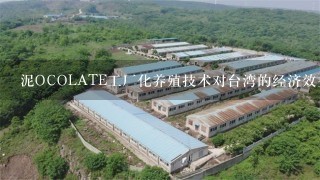泥OCOLATE工厂化养殖技术对台湾的经济效益有哪些影响?

OCOLATE FACTORYIZATION AND FARMING TECHNOLOGY'S IMPACT ON TAIWAN'S ECONOMY
1. Employment Creation:
- The chocolate factory would create numerous full-time and part-time jobs, boosting the economy and stimulating local businesses.
- The construction and operation of the factory would also attract skilled workers from other industries, further diversifying the economy.
2. Foreign Exchange Earnings:
- Taiwan's chocolate exports are primarily destined for the international market.
- The establishment of a chocolate factory would allow the country to earn foreign exchange, increasing its economic competitiveness.
3. Industrial Development:
- The chocolate factory would attract investment in infrastructure, technology, and equipment.
- This investment would create spin-offs in related industries, such as transportation, logistics, and tourism.
4. Innovation and Technology:
- The chocolate factory would be a hub for research and development in the food industry.
- It would collaborate with universities and research institutions, fostering innovation and technological advancements.
5. Food Security:
- Chocolate is a highly valuable commodity for food security.
- By increasing local production, Taiwan can reduce its dependence on imported cocoa beans and ensure food stability.
6. Cultural Impact:
- Chocolate is a beloved cultural symbol in Taiwan.
- The chocolate factory would provide a platform for local farmers and producers to showcase their products and promote cultural heritage.
7. Environmental Sustainability:
- Chocolate production can be environmentally sustainable, with many factories using renewable energy sources and implementing waste reduction practices.
- By reducing the country's reliance on imported cocoa, Taiwan can also promote sustainable agricultural practices.
Conclusion:
The chocolate factoryization and farming technology industry has significant potential to boost Taiwan's economy in various ways. It would create jobs, generate foreign exchange earnings, foster industrial development, promote innovation, enhance food security, promote cultural heritage, and promote environmental sustainability.





































































